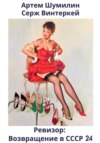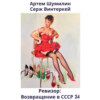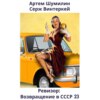Читать книгу: «An Isle of Surrey: A Novel», страница 20
In the next room were pen, ink, and paper. Why should he not write instead of going back? That was it! He'd write explaining, play at the club to-night, and go on to Welford in the morning. That was a better programme than crawling back to that silly old invalid and acting sorrow at parting when his heart was overrunning with joy.
He went into the next room and wrote his first letter to his wife. He used a sheet of unheaded paper, and did not date or domicile it.
My dearest Nellie, – Upon coming to town I found waiting for me a telegram from Rio Janeiro to the effect that if I did not reach that city at the very earliest moment possible-in fact, by a steamer sailing from London to-day-my title to the estate on which the fibre grows would lapse. Nothing but my personal presence could save it. So, much against my will, I was obliged to drive in hot haste to the boat without the satisfaction of bidding you good-bye. Indeed, I have barely time to write this scrawl, and shall have to intrust it to a waterman for post. Be quite sure all will go well with me, and that I shall telegraph you the moment I land. I am so glad I wrote for Mrs. Farraday before leaving home this morning. I know she will take every care of my Nellie while I am away, and I am sure my Nellie will take every care of herself, and be quite well long before the return of her loving husband,
William Crawford.
"Thank heaven that's the end of this ridiculous connection!" he said to himself as he dropped the letter into a pillar-box in front of the club. "My mind is now easy, and I can enjoy myself. I can play to-night as though I were still a bachelor with no thought of the morrow. Ah, but I have thought of the morrow! What delightful thought, too! delightful Hetty."
It was late in the evening when this letter was delivered at Singleton Terrace. Nothing else came by that post. Although Mrs. Crawford had often seen her husband's writing, this was the first letter she had got from him, and she had never before seen her name and the address of that house in his writing. She did not recognise the hand, and thinking the letter must be connected with routine business about the Welford property, she put it on the table by her bedside unopened. He attended to all such matters.
When the maid brought in her supper she took up the letter again and turned it over idly in her hands. All at once it struck her that the writing was familiar, but whose it was she could not guess.
With a smile at her own curiosity, she broke the cover and drew out the sheet of paper.
She looked at the signature languidly until she read it. Then hastily, tremulously she scanned the first few lines. When she gathered their import she uttered a low wailing sob and fell back insensible on the pillow.
CHAPTER XXXVIII.
WILLIAM CRAWFORD FREE
When William Crawford had posted his letter to his wife he felt ten years younger than an hour before. He enjoyed an extraordinary accession of spirits. The day had grown heavy and cloudy, but to him it was brighter than the flawless blue of Mediterranean summer. Richmond and Singleton Terrace were done with for good and all. There were to be no more private theatricals played for board and lodgings. Instead of simulating love for an elderly woman, he was at liberty to make real love to the most charming young girl he had ever met. His notions of right and wrong were clear and simple: what he liked was right, what he did not like was wrong. Since he had come to man's estate he had acted upon the code, and it never once occurred to him to question it. He did not object to other men being pious or just or modest; he did not object to their even preaching a little to him about the merit of these or any other virtues. All he asked was to be let go his own gait unmolested.
He was now at liberty to take what path he chose and adopt what sport pleased his humour. He had played for a small fortune and won. He felt proud of his success, and sorry that the nature of it forbade him glorying in it. He was aware that the most disreputable and unprincipled blackleg in the Counter Club would scorn to get money as he had acquired his. But this did not matter to him. He was not going to tell any one at the club how he came by the money; that was an irksome self-restraint imposed upon himself out of deference to ridiculous conventional ideas. But he had the money in his pocket-that was the great thing.
As he intended playing all through the night, if the game were kept up, it was too early to begin at three o'clock in the afternoon. He should be fagged out before morning if he sat down now. He was neither so young nor so impetuous that he could not discipline desire to delay.
All at once he remembered that in abandoning Singleton Terrace so suddenly he had lost his kit. The value of his baggage was not very great, and with the sum now in his possession he would not for three times its value go back to Richmond for it. He had now no personal belongings but the clothes he stood in and a portmanteau at Welford. He would go to a tailor and an outfitter and order what he wanted. That would amuse him and help to kill time. He should get back to the club about seven, and devote the rest of the evening and all the night to cards.
He did not go to the tailor with whom he had dealt since he came to live at Richmond. He wanted to cut himself off from that place as completely as possible.
At the tailor's he ordered three suits of clothes to be ready in three days and forwarded to Crawford's House, Crawford Street, Welford. What he bought at the outfitter's were to be sent to the tailor's and to accompany the parcel of the latter. He paid in advance for all. Then he went to another shop, purchased a portmanteau, and directed it to be delivered at the tailor's, and sent a note with it, asking him to put the outfitter's parcel and the clothes into it and send it to the address already given.
Then he bethought him of a dressing-bag, and he bought a handsome one with silver-mounted bottle and ivory-backed brushes. The bag, being of leather, reminded him that he had no boots but those on his feet. So he purchased a couple of pairs and a pair of slippers, and the slippers put him in mind of a dressing-gown.
He directed all these things to be sent to the tailor's, and wrote to the tailor to let them all be forwarded at the one time-that is, when the clothes were finished, in three days.
He enjoyed this shopping greatly. He had never before spent so much money on himself in one day. It was so pleasant to buy these articles without worrying about the price, to be in doubt as to whether he should have a dressing-bag at thirty or thirty-five pounds, and to decide in favour of the thirty-five-pound one merely because it had prettier bottles and a greater number of pockets.
When he could think of nothing else which he wanted, he said to himself, "And now what shall I take Hetty? I must get the very handsomest present I can light upon."
This set him off calling Hetty up to mind. He looked into the windows of a dozen jewellers' and shops where fancy articles were sold. He failed to find an article to his liking. He could not realise Hetty accepting any of the costly gifts presented to his view. At length with a sudden start he cried out to himself, "What an idiot I have been! Of course, she would not accept any of these things from me now. A few simple flowers from Covent Garden to-morrow morning on my way to Welford will be the very thing."
It never once occurred to him during the day that the money he was spending belonged to his wife, and was being laid out in a way and under conditions not contemplated by her in giving it to him. When he decided on taking flowers to Hetty, it never once occurred to him that this would be spending his wife's money to conciliate a rival of hers, and that twenty-four hours ago he would have bought these same flowers for his deserted wife.
"Hetty," he said, formulating his theory, "is to be won through her imagination, not by pelf."
When he got back to the club he reckoned up what he had spent. It was an agreeable surprise to find that although he had treated himself with great liberality, all his purchases did not absorb the hundred-pound note he had changed at the tailor's. He had got a moderate outfit and a very handsome dressing-case, with cut-glass bottles silver-mounted, and ivory-backed brushes, for less than one thirty-second part of the money received from Mr. Brereton that afternoon. He sat down to an excellent dinner with the conviction that he had done a fair day's work, and that he was entitled to enjoy himself for the remainder of the evening, and as far into the morning as he chose.
The dinner was excellent; his shopping had given him zest for it, and when he stood up from the table he felt in the most excellent humour with himself and all the world.
He looked at his watch.
"She has my letter by this time," he said to himself, thinking of his wife. "If she is not a greater fool than I take her for, she will know from it that she has seen the last of me."
When he wrote the letter he had no intention of conveying any such idea to her, but his shopping and thoughts of Hetty had hardened his heart since then towards his unhappy wife, and now he wanted to believe that his letter would leave her no loophole of hope.
"Dr. Loftus said any shock might bring on the end. Perhaps my letter-" He paused and did not finish the sentence, but began another: "When a case is hopeless the greatest mercy which can be shown to the sufferer is, of course, to put an end to the struggle. She could not have fancied for a moment that I was going to spend all my life in the sick-room of a woman almost old enough to be my mother. Anyway, I need not bother my head any more about the matter. She cannot say that while our married life lasted I was not a kind and considerate husband. Turn about is fair play, and I am going to be a little kind and considerate to myself now. I'll put the past away from my mind. 'Gather we rosebuds while we may' is my version. Now to lose for the last time."
At the Counter Club there were men every night who did not mind how far into the morning they sat so long as they were winning. From the moment Crawford touched the cards until he rose at half-past six he had lost steadily. Though he had played for higher stakes than usual, he had been as careful of his game as if he had no more than a few hundred pounds with him. He had not been reckless. He had not plunged. Luck had simply been dead against him, and when, while eating his early breakfast, he counted up the cost, he found he was close on three hundred pounds the worse for his night's experience.
Mentally he cursed his bad luck.
"But I deserve no better," he thought. "I told myself that I should have good luck only when I had come from Welford. The luck I played with last night was my wife's or my own, and both have been invariably bad. I shall go to Welford to-day, and play to-night with Hetty's luck, and win back all I have lost and more besides. And now to get a bouquet for Hetty-for the loveliest girl in the whole of England. But the bouquet must not be too splendid. It must be simple and cheap, or it might do more harm than good."
At Covent Garden he bought some simple blossoms, and had them tied carelessly together.
"She will not value them for what they cost, but for my remembering her."
He was full of confidence in his power to fascinate and win. It never for a moment occurred to him that Hetty might not care for him or his memory of her. The notion of a rival had never entered his head, and if any one had suggested such a thing he would have laughed the consideration of it to scorn. He admired Hetty intensely, and he meant to succeed, and succeed he would.
He lounged about Covent Garden for a good while, for he did not want to reach Welford until Layard had gone to the gasworks. Of course he should say his visit to Crawford's House was made with the purpose of seeing what progress had been made with the gates for the flooded ice-house.
It was about eleven o'clock when he got to Welford Bridge.
"The coast will be quite clear till one or two o'clock," he thought, with a sense of satisfaction. "Layard has gone to the works and Philip Ray is in his office, curse him!"
When Hetty heard the latch in the door that day she came to no hasty conclusion that it was her brother come back for something he had forgotten. She was in the kitchen with Mrs. Grainger at the moment, and guessed immediately it was Crawford, although the week was not yet up. If Philip Ray had not spoken out to her, that sound at the door and the likelihood of the visitor being the landlord of the house would have thrown her into unpleasant excitement bordering on panic; but now she felt as calm and as much at ease as though certain it was Alfred himself.
"I shall say nothing of what that dreadful man said about his falling into the river," she resolved hastily. "If he chooses to speak of it, well and good; if he does not, well and good also. We are to leave this house as soon as Alfred can make arrangements for doing so. The quieter and the smoother everything goes in the meantime the better."
Crawford paused in the hall. Mrs. Grainger appeared "Is Mr. Layard in?" he asked, well-knowing he was not.
"No, sir, he's gone to the works."
"Then will you tell Miss Layard I should be glad to see her for a few minutes?" he said, taking off his hat and putting it on the table.
Hetty came at once, and held out her hand with a smile.
"She looks lovelier than ever," he thought, as he took the long slender hand and retained it. "I know I have come before my time, but I have been bothered again in my sleep about that ice-house and you. I will stay a day or so in order to see the gates put up-that is, of course, if you do not object?"
"Object!" she said, withdrawing her hand. "Why on earth should we object?"
"Well, I don't know," said he. "It may seem to you that I am unduly anxious about the matter. But upon my word, my anxiety about you has deprived me of all peace since I saw you last, and that scoundrel to whom I gave the order for the gates has not begun them yet. I assure you I had to exercise all my self-restraint to keep my hands off the fellow when I forced the truth from him. Will you accept a few simple flowers as a peace-offering and in lieu of the gates?"
"O, thank you," she said. "They are beautiful! But you give yourself a great deal of unnecessary anxiety and trouble about that ice-house. We never allow little Freddie on the Quay by himself, and of course there is no danger for a grown-up person, because no grown-up person ever goes near it. How on earth," she asked, with a laugh, "do you fancy a grown-up person could fall into such a place?" She wondered was he going up to his own room, or did he intend to remain standing there all day?
"I daresay I should not mind it if my dream happened to be about any one else. But the mere hint that any danger could threaten you is enough to drive me distracted. It is indeed," he said, looking at her intently, and with a pained expression on his usually passive face. "I assure you I did not sleep a wink last night; I could not, and I feel quite worn out and ill this morning. I have been wandering about, trying to kill time until I thought it was not too early to call here. I am hardly able to stand with anxiety, want of sleep, and fatigue."
"Would you not like to go to your own room and rest awhile? I will send Mrs. Grainger up with something nice for you."
"Mrs. Grainger could bring up nothing that I'd care for, and I hate the notion of going to that lonely room. I am quite nervous and unstrung." He sighed faintly and leaned against the wall for support.
"Well," she said, "will you come into our room and rest there?" Plainly, after his reference to the loneliness of his own place and the declaration of his exhausted condition, there was nothing but to offer him their front-room.
"Thank you," he said, "I shall very gladly accept your offer. I am thoroughly ashamed of seeming so weak and unmanned, but indeed I have had an awful time of it."
He sank on a chair as though completely exhausted. She stood by the door and said, "Cannot I send you something, Mr. Crawford?"
"If you would be so good as to get me a glass of water and then not leave me for a little while I should feel very grateful to you."
She hastened away and returned in a few seconds with the water.
"Miss Layard, I cannot tell you how ill I felt as I came along here. I really thought I should not have had courage to open the front door. I was full of the direst imaginings. I fancied that no sooner should I raise the latch than some awful form of bad news about you would strike me dumb with horror, paralyse me with despair." He took out his handkerchief and rubbed his forehead, which, however, was perfectly free from moisture.
"I am very sorry to be the cause of so much trouble to you, Mr. Crawford," said Hetty with some concern, though she had a vague kind of feeling that there was something wrong with the man-that he was either acting or of weak intellect. It never once occurred to her that he was thinking of making love to her. How could it? Was not he a married man? And did he not know that they were aware the owner of the Welford and Leeham property was his wife? She thought he had been a good deal too impulsive and a little impertinent on the former occasion when he told her of his dream, but now she was almost convinced that his violence of language on the former occasion and his physical collapse now were the result of a weak mind under strong excitement.
For a while after drinking the water he sat still and did not speak. Apparently he was gradually recovering, for he sighed once or twice, and once or twice straightened himself and sat upright on his chair. "I shall be all right in a few minutes. The sight of you is doing me good."
"Well, of course you know now nothing dreadful has happened?"
"To you-yes; I know that, thank Heaven! but to me, yes."
"Something dreadful has happened to you?" cried Hetty. "I am sorry to hear you say so. Nothing, I hope, that can't be mended?"
"Well, I do not know about that. If my condition were very desperate, Miss Layard, and it was in your power to mend it, and I asked you to help me, would you do so?"
"Certainly, Mr. Crawford, if I possibly could." He rose and went to her where she sat by the table, and bent over her, and said in a low, tremulous, tender voice, "Thank you-thank you a thousand times, my dear Miss Layard, my dear Hetty-may I call you Hetty?"
She coloured and looked uncomfortable, and this made her shine in his eyes with ineffable beauty. "It is not usual," she said at last.
"No, it is not usual, but I would deem it a great privilege. I of course would not call you by your dear Christian name when any one was by, but when you and I were having a little chat by ourselves I might, might I?"
Her colour and her confusion increased. "It is not usual," she repeated. "There is no reason why you should call me one thing now and another thing at another time." She raised her eyes, drew away a little from him, and pointing to the chair, said with steady emphasis which surprised herself, and showed him he must go no further-now, anyway: "I am afraid you are not yet rested enough to stand so long. Will you not sit down again?"
"You are right," he said with a deep sigh. "You are quite right. I am completely worn out, and my head is confused."
"There is no couch in your own room-perhaps you would like to rest on the one here? You will not be disturbed for some hours yet. My brother does not come in till three."
"Thank you very much, Miss Layard," he said, without any emphasis on her name. "But I think I'll go to my own room and lie down now. If I could get an hour's sleep I should be all right."
When he stood alone in his own room he said to himself, "I have not made much progress with her yet. I durst not go any further to-day than I went. Next time I ask her I'd bet a thousand pounds to a penny she'll give me leave to call her Hetty when we're alone. Once let her give me leave to call her Hetty when we are alone while I am to call her Miss Layard when any one else is present, and the rest is simple. My dreams" – he uttered his short sharp laugh and winked his eyes rapidly-"my dreams and my enormous solicitude for her welfare must tell in the end."
He went to the open window and looked out at the canal and the Ait and the tow-path. Then he turned his eyes downward.
With a cry of terror he sprang back, as though a deadly weapon or venomous snake in act to strike were a hand's breadth from his breast.































